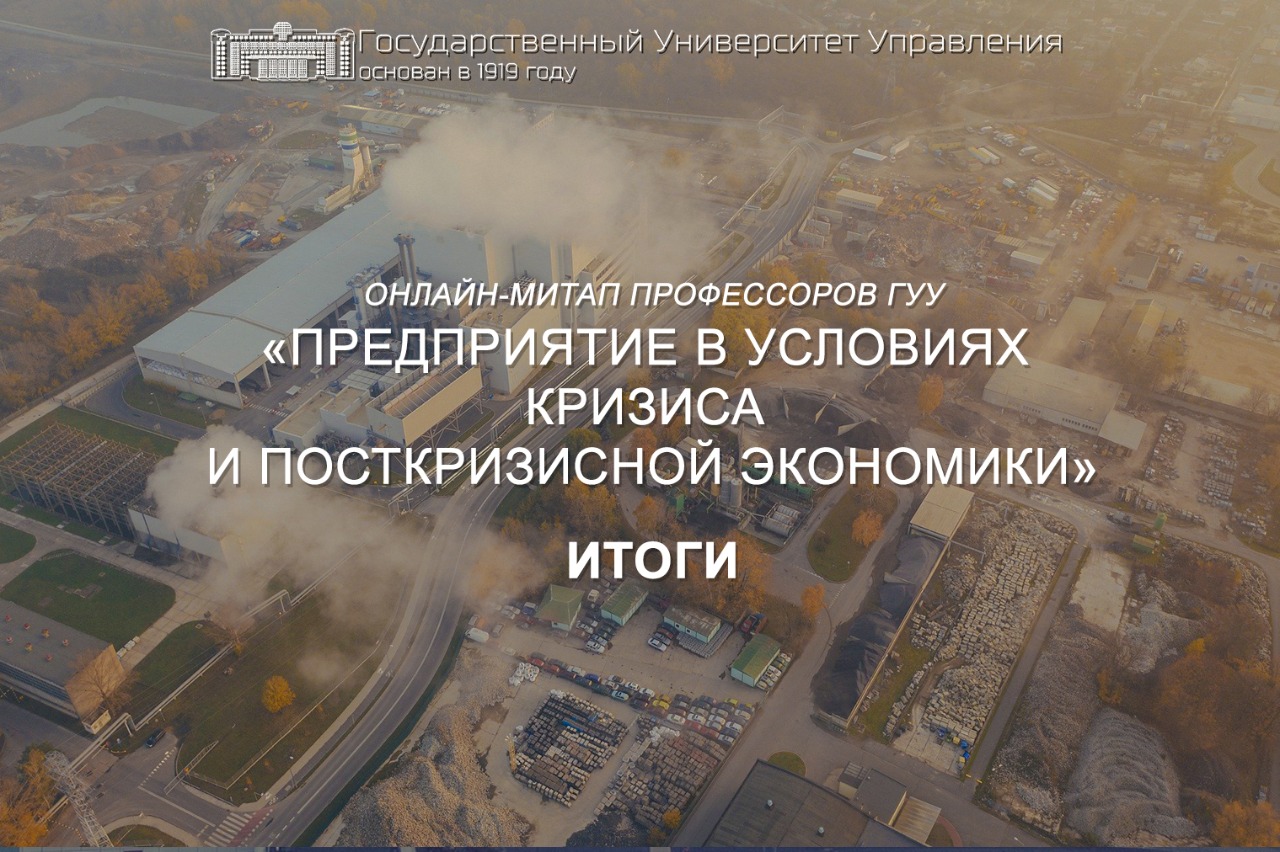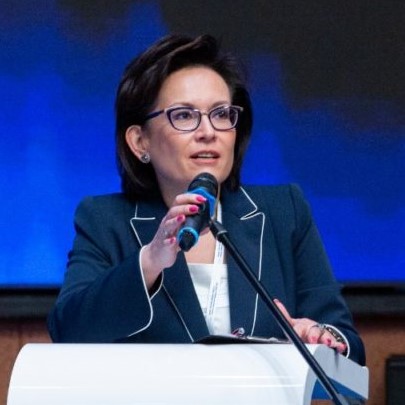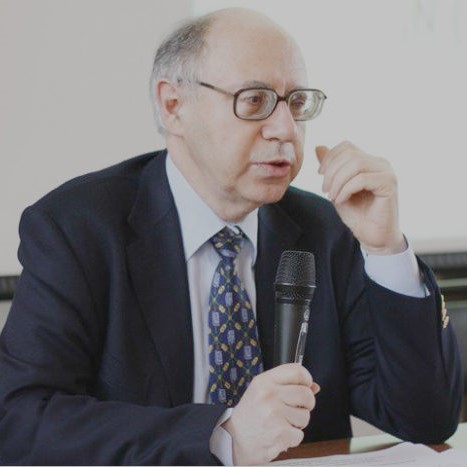
Georgy Kleiner, ‘the crisis of 2020 may become the toughest one in the past 30 years’
On 27 May SUM organised an online meeting of SUM professors, ‘Enterprises amid economic crisis and post-crisis economy’. During the live stream, experts discussed the latest studies and findings that can help with business planning in an uncertain environment.

Enterprises amid economic crisis
The economic crisis caused by the coronavirus pandemic and fluctuations of oil prices has taken a toll on all companies across nearly all industries. According to the moderator of the meeting, SUM Vice Rector, Doctor of Economics, Professor Ksenia Ekimova, the global community is currently at risk of losing $6 to $9 trillion because of the drop and the deviation from forecasts on the development of enterprises and the global economy.
‘Russia as well as the global economy is entering a recession. In April Russia’s nominal GDP based on current prices was already RUB 2.4 trillion lower year-on-year according to the report of the Ministry of Finance. The key problem of the economy is the non-payments crisis,’
said Kseniya Ekimova.
The toughest crisis in the past 30 years
The discussion was based on the report prepared by Georgy Kleiner, Doctor of Economics, Professor, corresponding member of the Russian Academy of Sciences, Head of the SUM Institutional Economics Department. His opponents were Nikolay Kuznetsov, Doctor of Economics, Candidate of Technical Science, Director of the SUM Research Institute of Digital Economy Transformation Management, and Sergey Lukyanov, Doctor of Economics, Professor of the Russian Academy of Sciences, Head of the SUM Department of Global Economy and International Economic Relations.
Speaking on the economic crisis, Georgy Kleiner said,
‘The crisis provoked by the coronavirus has turned out to have more long-term consequences than originally expected. The crisis of 2020 may become the toughest one in the past 30 years.’
In his report, Georgy Kleiner also emphasised that to overcome the crisis, the government has to offer more specific support measures, at the same time reducing the barriers for receiving such targeted aid. Government regulations and support must be integrated rather than local.

‘Collaboration across all industries and institutional levels has to become the quintessential instrument, replacing animosity and competition. The institutions of relationships between governments and enterprises need to be reconstructed, and they all need to work in solidarity on overcoming the economic crisis,’ said the professor.
Mr Kleiner also mentioned that efforts of one specific country to overcome the crisis will not be effective because international cooperation has become the new norm in producing the majority of research-intensive products. He suggested a mechanism for overcoming the non-payments crisis: using barter; however, Sergey Lukyanov mentioned that using the basic barter mechanisms is impossible in the context of the global value chain.
Investment policy in danger

Amidst projections of a decrease in foreign direct investment due to the reduced economic activity between different countries across all industries, consequences for the Russian investment policy may lead to significant ‘technological underdevelopment’.
‘The impact of foreign direct investment on domestic investments in the economy is not linear and depends on the scale of the technological gap between technologies coming into the country and the country’s production levels,’ said Sergey Lukyanov. ‘Closing the borders can often break the global value chain, thus bringing foreign direct investment down to a zero. That’s why national enterprises are forced to look for new possible avenues to survive regardless of foreign investments, and the government has to find ways to make up for these consequences.’
Sergey Lukyanov estimates the impact of the pandemic on Russian enterprises based on the consequences linked to the impact of foreign direct investment on domestic investments in the Russian economy. A database of enterprises for 2008–2017 is used to assess the effects from the presence of foreign companies in the Russian manufacturing industry at the level of a region, an industry and an industry in the region.
At the regional level, statistically significant effects of crowding out domestic investment have been detected for government-owned, larger and less effective companies.
At the industry level, the negative effects of crowding out have been detected when the share of foreign direct investment in the industry is over 25%.
Assessing the presence of foreign companies at the industry level in the region, Sergey Lukyanov detected the effects of domestic investment being crowded out mainly for private-owned companies and then for more effective national companies.
Government support has to be offered to businesses capable of creating a multiplicative effect in the economy
In his report, Nikolay Kuznetsov emphasised that,
Government support has to extend to sectors that are capable of creating a multiplicative effect in the economy.
Small-, medium-sized and large businesses alike require government support. In his report, Nikolay Kuznetsov pointed out high bureaucratic barriers when it comes to small businesses receiving government support and also mentioned that the majority of national support measures are targeted at business giants, having little to no impact on small- and medium-sized businesses.

He also mentioned that reduced profit tax announced by the government will not make any significant difference because as of right now the majority of companies are not making any profit. It would have been more effective to reduce the VAT rate.
It is time for the government to discuss the funding of an economic recovery. A potential measure could be abolishing the corporate bond income tax.
The government has made a decision to offer subsidised loans to finance the operating assets of businesses. The key requirement is the preservation of jobs. This is essentially a ‘loan in support of employment’. But we also need to see subsidies for investment loans. A business brave enough to aspire to grow in a situation like this most certainly deserves to be supported by the government. It is necessary to discuss subsidised loans when it comes to purchasing commercial property. There should also be a mechanism for subsidising leasing interest rates. Expanding the coverage of the instrument of government guarantees would also be an effective measure.
The full meeting of SUM professors is available here.
Подпишись на тг-канал "Наш ГУУ" Дата публикации: 29.05.2020
Дата публикации: 29.05.2020


